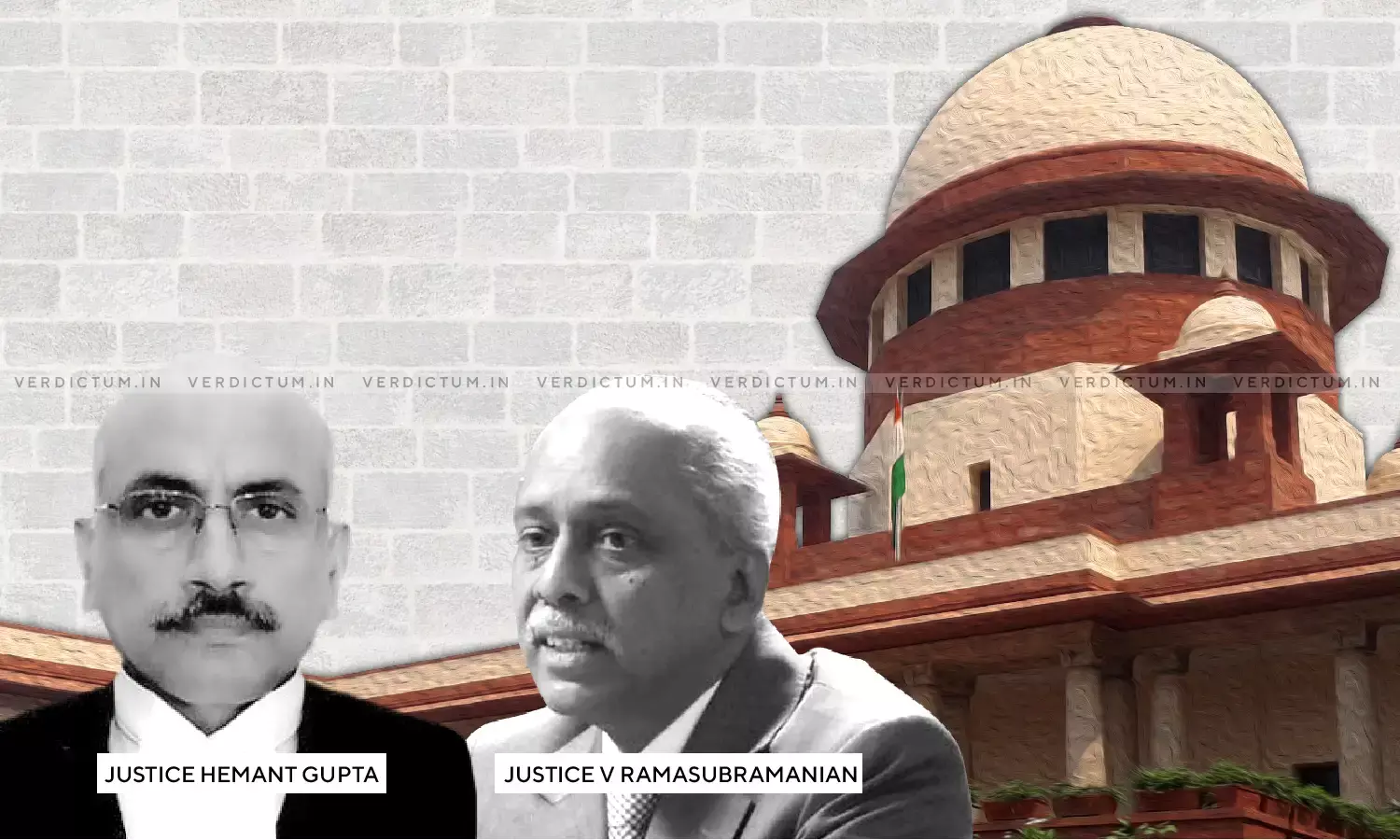Trial Court And First Appellate Court Must Record Findings On All Issues For Early Disposal Of Suit - Supreme Court
A Supreme Court Bench of Justice Hemant Gupta and Justice V Ramasubramanian set aside an order of the High Court where the High Court had directed the Trial Court to frame a preliminary issue.
The Bench in this context held -
"The objective of the provisions of Order XLI Rules 24 and 25 is that if evidence is recorded by the learned Trial Court on all the issues, it would facilitate the first Appellate Court to decide the questions of fact even by reformulating the issues. It is only when the first Appellate Court finds that there is no evidence led by the parties, the first Appellate Court can call upon the parties to lead evidence on such additional issues, either before the Appellate Court or before the Trial Court. All such provisions of law and the amendments are to ensure one objective i.e., early finality to the lis between the parties."
The Appellants prayed for - an order declaring them to be absolute owners of the suit property, a previous judgment and decree being set aside, and a permanent injunction restraining the Respondent and her agents from disturbing the peaceful possession and enjoyment of the suit property. The Respondent was their paternal aunt. Initially, the Respondent filed an application under Order VII Rule 11 of the Code of Civil Procedure, 1908 for rejection of the plaint but the same was dismissed by the Trial Court. The Respondent then filed an application under Order XIV Rule 2(2) of the Code to treat the certain issues as preliminary issues:
The Trial Court dismissed the application of the Respondent. This was challenged by way of a Revision Petition under Article 227 of the Constitution, where the High Court ordered the issue of one particular issue as the preliminary issue.
The Supreme Court noted that in the case of Major S. S. Khanna v. Brig. F. J. Dillon, it was held that under Order XIV Rule 2 of the Code where issues both of law and of fact arise in the same suit and the Court is of opinion that the case or any part thereof may be disposed of on the issues of law only, it shall try those issues first, and postpone the settlement of the issues of fact until other issues of law have been determined.
The Court also noted that the amended provision of Order XIV was considered by a Full Bench of the Allahabad High Court, where it was held that it was discretionary for the Court to decide the issue of law as a preliminary issue, or to decide it along with the other issues. It was further held that even all issues of law cannot be decided as preliminary issues and only those issues of law falling within the ambit of clause (a) and (b) of sub-rule (2) of Rule 2 could be decided.
To that end, the Bench opined that the order of the High Court to direct the Trial Court to frame a particular preliminary issue was not desirable to ensure speedy disposal.
Further, it opined that if the issues of both law and fact arise in the same suit, and the Court is of the opinion that the case or any part thereof may be disposed of on an issue of law only, it may try that suit first, if it relates to jurisdiction of the Court or a bar to the suit created by any law for the time being in force, and only in those circumstances the findings on other issues can be deferred.
The Supreme Court held that the order of the High Court remanding the matter to the Trial Court to frame preliminary issues runs counter to the mandate of Order XIV Rule 2 of the Code and thus, is not sustainable in law.
In this context, the Court opined -
"Keeping in view the object of substitution of sub-Rule (2) to avoid the possibility of remanding back the matter after the decision on the preliminary issues, it is mandated for the trial court under Order XIV Rule 2 and Order XX Rule 5, and for the first appellate court in terms of Order XLI Rules 24 and 25 to record findings on all the issues."
Consequently, the Appeal was allowed and the order passed by the High Court was set aside.
Click here to read/download the Judgment




